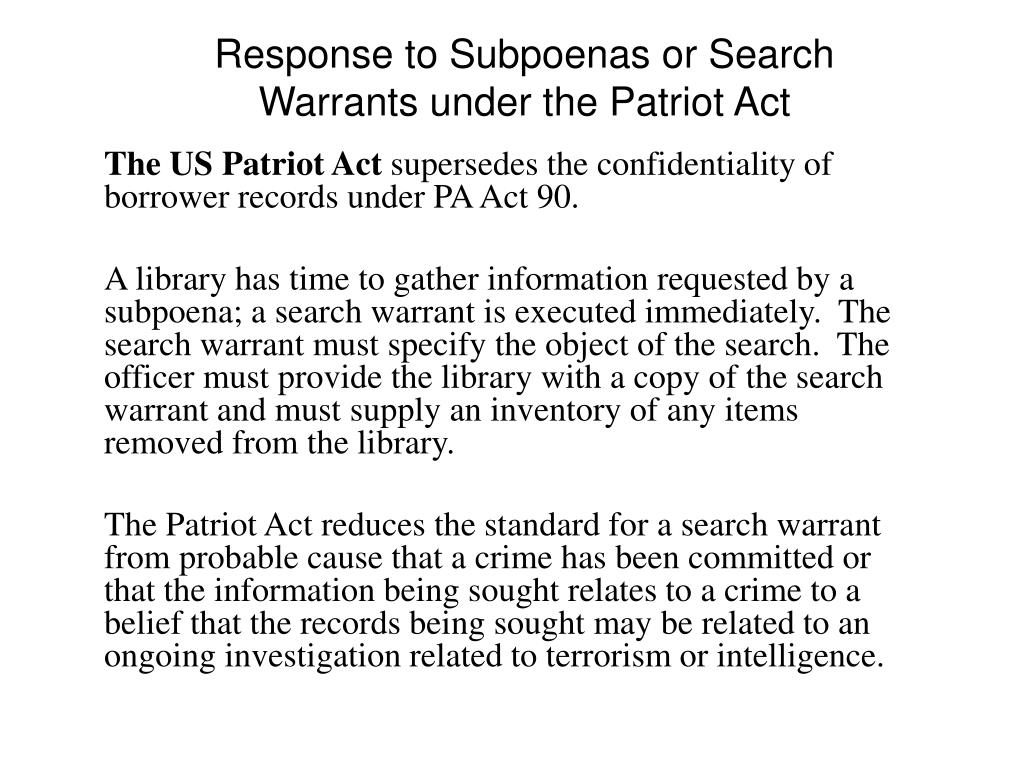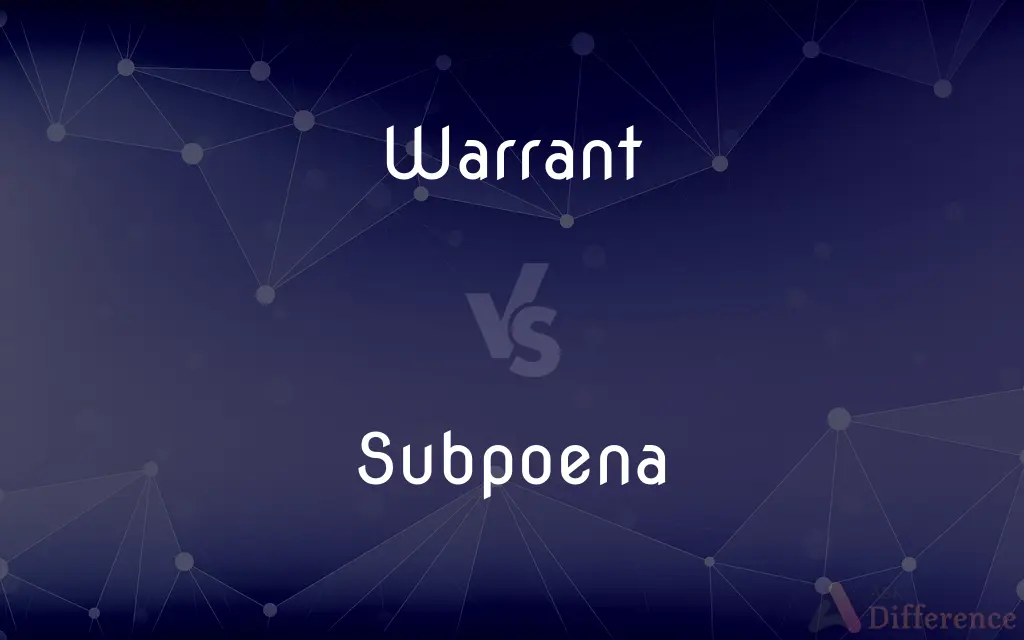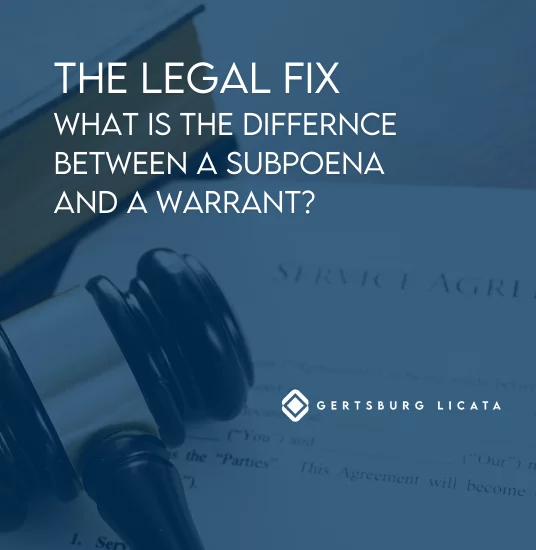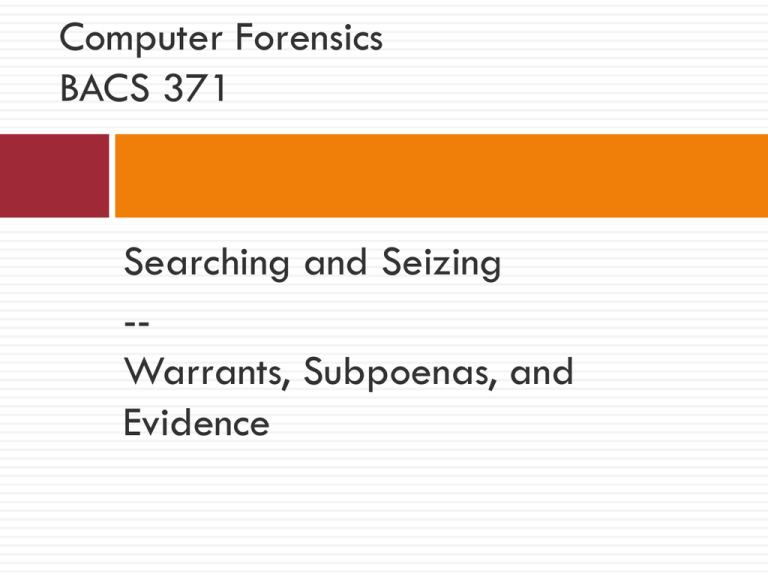Search Warrant Vs Subpoena - Subpoenas and warrants are both court directives. But there are also many differences between them. For instance, a search warrant allows officers to enter a specified location to look for evidence without the property owner's consent. A search warrant authorizes law enforcement to seize the specific items listed in the warrant if found during the authorized. Issued by a magistrate (judge), a search warrant may only be served by a law enforcement officer and must.
Issued by a magistrate (judge), a search warrant may only be served by a law enforcement officer and must. For instance, a search warrant allows officers to enter a specified location to look for evidence without the property owner's consent. Subpoenas and warrants are both court directives. A search warrant authorizes law enforcement to seize the specific items listed in the warrant if found during the authorized. But there are also many differences between them.
A search warrant authorizes law enforcement to seize the specific items listed in the warrant if found during the authorized. But there are also many differences between them. For instance, a search warrant allows officers to enter a specified location to look for evidence without the property owner's consent. Issued by a magistrate (judge), a search warrant may only be served by a law enforcement officer and must. Subpoenas and warrants are both court directives.
Library Privacy Audits and Search Warrants Preparing for
Issued by a magistrate (judge), a search warrant may only be served by a law enforcement officer and must. For instance, a search warrant allows officers to enter a specified location to look for evidence without the property owner's consent. Subpoenas and warrants are both court directives. A search warrant authorizes law enforcement to seize the specific items listed in.
PPT Response to Subpoenas or Search Warrants under the Patriot Act
Issued by a magistrate (judge), a search warrant may only be served by a law enforcement officer and must. Subpoenas and warrants are both court directives. For instance, a search warrant allows officers to enter a specified location to look for evidence without the property owner's consent. A search warrant authorizes law enforcement to seize the specific items listed in.
WARRANTS AND SUBPOENAS What to Look Out for and How to Respond — PPSSF
But there are also many differences between them. For instance, a search warrant allows officers to enter a specified location to look for evidence without the property owner's consent. Subpoenas and warrants are both court directives. A search warrant authorizes law enforcement to seize the specific items listed in the warrant if found during the authorized. Issued by a magistrate.
Library Privacy Audits and Search Warrants Preparing for
Subpoenas and warrants are both court directives. A search warrant authorizes law enforcement to seize the specific items listed in the warrant if found during the authorized. For instance, a search warrant allows officers to enter a specified location to look for evidence without the property owner's consent. But there are also many differences between them. Issued by a magistrate.
Warrant vs. Subpoena — What’s the Difference?
Subpoenas and warrants are both court directives. A search warrant authorizes law enforcement to seize the specific items listed in the warrant if found during the authorized. For instance, a search warrant allows officers to enter a specified location to look for evidence without the property owner's consent. Issued by a magistrate (judge), a search warrant may only be served.
Subpoenas, Court Orders and Search Warrants
Issued by a magistrate (judge), a search warrant may only be served by a law enforcement officer and must. A search warrant authorizes law enforcement to seize the specific items listed in the warrant if found during the authorized. For instance, a search warrant allows officers to enter a specified location to look for evidence without the property owner's consent..
What is the Difference Between a Subpoena and a Warrant? Gertsburg Licata
A search warrant authorizes law enforcement to seize the specific items listed in the warrant if found during the authorized. Subpoenas and warrants are both court directives. Issued by a magistrate (judge), a search warrant may only be served by a law enforcement officer and must. But there are also many differences between them. For instance, a search warrant allows.
Warrants, Subpoenas, and Evidence Slides
A search warrant authorizes law enforcement to seize the specific items listed in the warrant if found during the authorized. Issued by a magistrate (judge), a search warrant may only be served by a law enforcement officer and must. For instance, a search warrant allows officers to enter a specified location to look for evidence without the property owner's consent..
Handling a Subpoena or Search Warrant at Your Business Rocket Lawyer
Issued by a magistrate (judge), a search warrant may only be served by a law enforcement officer and must. Subpoenas and warrants are both court directives. For instance, a search warrant allows officers to enter a specified location to look for evidence without the property owner's consent. A search warrant authorizes law enforcement to seize the specific items listed in.
Computer Forensics BACS ppt video online download
Issued by a magistrate (judge), a search warrant may only be served by a law enforcement officer and must. But there are also many differences between them. Subpoenas and warrants are both court directives. For instance, a search warrant allows officers to enter a specified location to look for evidence without the property owner's consent. A search warrant authorizes law.
Subpoenas And Warrants Are Both Court Directives.
For instance, a search warrant allows officers to enter a specified location to look for evidence without the property owner's consent. A search warrant authorizes law enforcement to seize the specific items listed in the warrant if found during the authorized. Issued by a magistrate (judge), a search warrant may only be served by a law enforcement officer and must. But there are also many differences between them.









